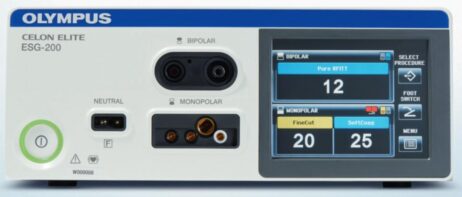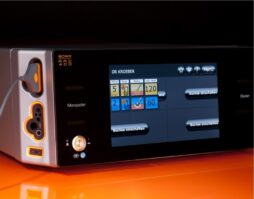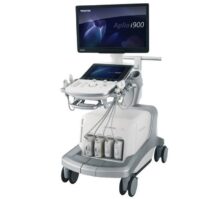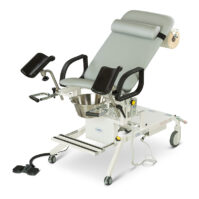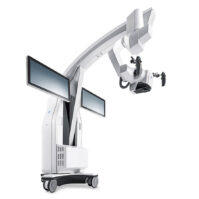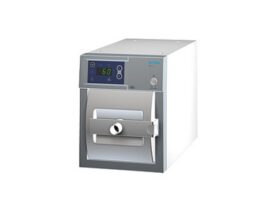Electrosurgical apparatus SALON ELITE EGG-200
ESG-200 is an electrosurgical device (generator) specially designed for use with OLYMPUS endoscopic equipment when performing manipulations on ENT organs, which has high quality and reliability.
Electrosurgical generator for use in ENT practice
The ESG-200 electrosurgical device provides fast and high-quality coagulation, dissection of tissues even when working on ENT organs. The results of the operations performed, safety and long-term results are provided by the built-in power monitoring system.
Design and management
The front panel of the ESG-200 has been designed to provide easy access to basic settings. All basic functions can be controlled via easily identifiable touch buttons.
A completely new, convenient and intuitive control of the system was created thanks to cooperation with doctors. The front panel is optimized as much as possible for user convenience and allows you to make various settings right during the procedure.
Intelligent Tissue Monitoring Technology
Intelligent Tissue Monitoring technology provides intelligent monitoring of the condition of tissues during manipulations on ENT organs, such as the treatment of hypertrophy of the nasal concha and tonsils, snoring and mild sleep apnea. When performing ablation, the system monitors the tissue impedance and regulates the power of the incoming current.
Automatic stop
When the upper threshold of the tissue impedance is reached, the system automatically stops the power supply. This function allows you to warn against excessive exposure and tissue damage.
Automatic start
Bipolar forceps can automatically activate quickly when touching the fabric. Activation of the control pedal is not required.
Intelligent message system
There is a touch screen on the front panel of the generator, which displays all the necessary messages reflecting the state of the system and providing feedback for comfortable operation.
Creating individual settings
A convenient function is to create individual settings for each procedure.
Stage 1 – creating individual settings
Stage 2 – combining settings with manipulation
Stage 3 – switching between settings

